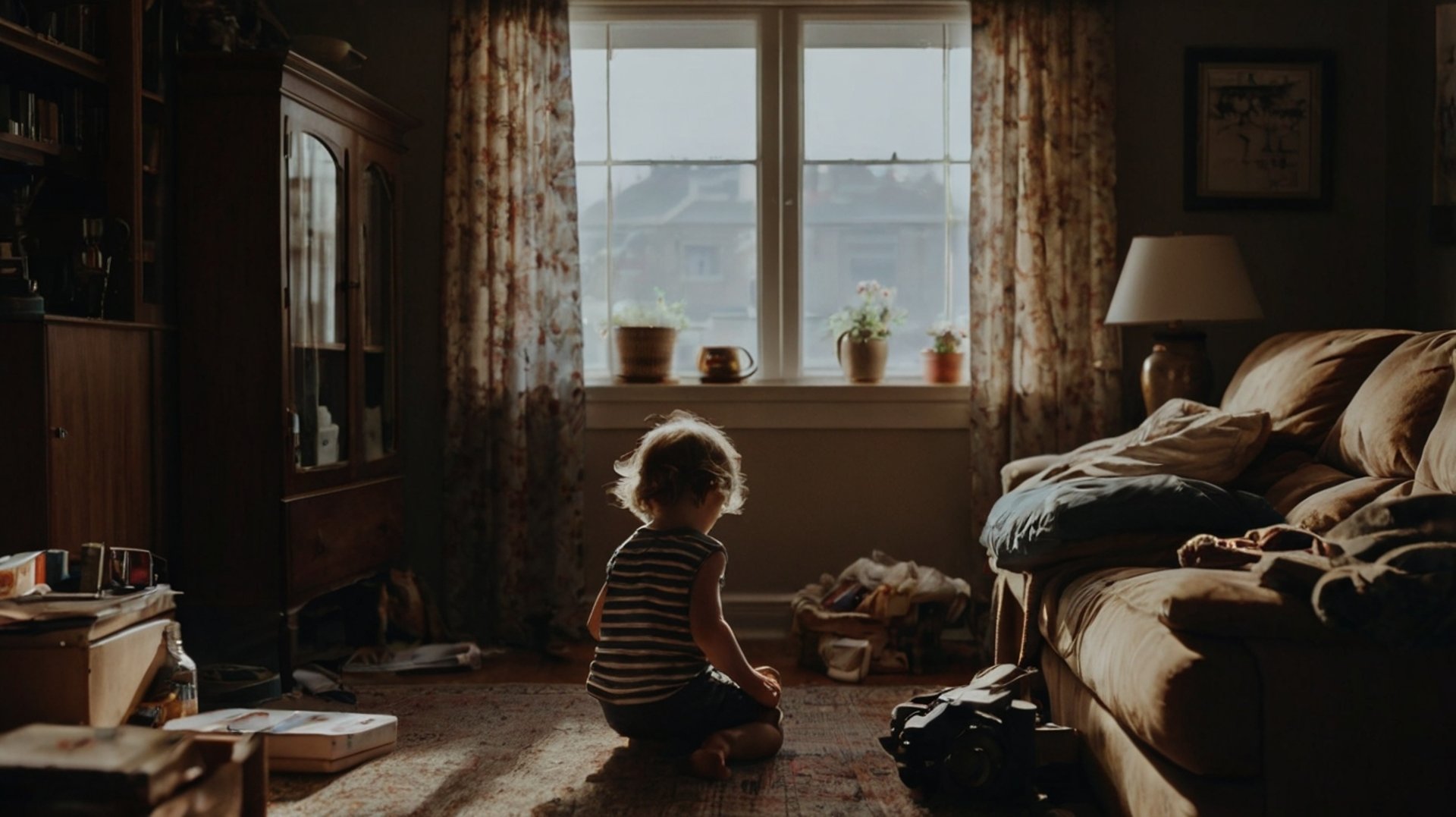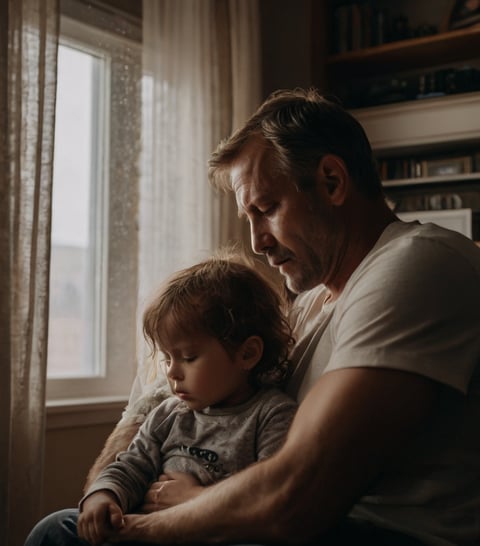
The Hidden Impact of Parental Burnout on Family Relationships
Explore "The Hidden Impact of Parental Burnout on Family Relationships" and discover how exhaustion and emotional detachment are secretly harming your family. Uncover practical strategies, causes, and the deep effects of burnout, offering essential insights for rebuilding connection and restoring balance in your family life.
PARENTING STRESS
2/27/20256 min read
The hidden impact of parental burnout on family relationships is a pressing issue that affects both parents and children in profound ways.
Parenting is a rewarding journey, but it also comes with immense challenges that can lead to physical and emotional exhaustion.
Our previous article have covered the topics such as what is parental stress, the science behind parental stress, common triggers of parental stress and how to recognize them, parental stress vs. burnout, and the hidden costs of parental stress on family dynamics, all of which contribute to burnout.
When left unchecked, parental burnout results in emotional distancing from children and a loss of fulfillment in parenting, negatively impacting the overall family dynamic.
This article explores how burnout manifests, its association with negative outcomes, and strategies to manage stress and rebuild family connections.
The Hidden Impact of Parental Burnout on Family Relationships
Parental burnout, as we understand it, is an intense state of exhaustion that stems from prolonged, unrelenting stress related to parenting.
This exhaustion isn’t just physical; it’s emotional too, leading to a disconnection from our children and a diminished sense of fulfillment in our parenting roles.
Unlike temporary stress, which we might be able to manage with quick breaks or relaxation techniques, burnout is a prolonged condition that can severely impair our ability to nurture our children and engage with them positively.
From our collective experience, we see this in parents who struggle daily, overwhelmed by the constant demands placed on them.


How Parental Burnout Manifests in Family Relationships
Burnout doesn’t appear out of nowhere—it grows over time, fed by the consistent demands of daily life. We can all recognize how this stress manifests in several noticeable ways:
Physical and Emotional Exhaustion: We’ve all felt the deep fatigue that makes it difficult to respond to our children's needs. This exhaustion can cause irritability and frustration, making it harder to be present in the moment.
Emotional Distancing from Children: We’ve observed that, when we’re experiencing burnout, there’s often a withdrawal from emotional connection. We feel overwhelmed and incapable of offering our children the warmth and nurturing they need.
Loss of Parental Fulfillment: Many of us know how it feels when the once-joyous role of parenthood becomes a source of guilt, sadness, or even resentment. This loss of fulfillment contributes to burnout and deepens the strain on our relationships.
Increased Conflict with Partners: Burnout doesn’t just affect parent-child relationships—it also strains our partnerships. We’ve noticed how increased tension between co-parents, often due to shared exhaustion, can escalate conflicts and further increase stress within the household.
Recognizing these early warning signs is crucial. It’s a reminder to take a step back before things spiral further.
The Link Between Parental Burnout and Negative Outcomes
Burnout by itself is a negative state.
However, when it hits parents as one of pillar of a stable society, the dangers that may arise and the consquences that threaten may be grave.


The Emotional Toll on Parents
We’ve seen how parental burnout can lead to a variety of mental health challenges. As burnout intensifies, it’s easy for us to fall into cycles of anxiety, depression, and chronic stress.
We may even develop a sense of inadequacy that only exacerbates our emotional distress. In many instances, the feelings of helplessness and social withdrawal deepen, which further reduces our ability to parent effectively.
Impact on Children’s Well-Being
Children, as we know, are incredibly perceptive. When parents are emotionally exhausted, it doesn’t go unnoticed. This emotional withdrawal can lead to several negative outcomes for our children:
Increased Behavioral Issues: As parents, we’ve seen how emotionally unavailable caregivers can trigger behavioral problems in children, including aggression, defiance, and withdrawal.
Poor Mental Health Outcomes: When we’re unable to provide the emotional support children need, it may result in anxiety or depression in them.
Strained Parent-Child Relationships: Over time, the distance between us and our children widens. This affects trust and diminishes the emotional bond.
Negative Academic Performance: When we’re stretched thin, children may struggle with their academics as well, particularly when they aren’t receiving the necessary guidance and encouragement from us.


Reduced Parenting Satisfaction
We’ve experienced firsthand how burnout can erode our sense of satisfaction in parenting. It can make us feel trapped in our roles, leading to more stress and less joy in the process.
This dissatisfaction becomes self-perpetuating, contributing to further burnout and making it even harder to reconnect emotionally with our families.
Understanding the Challenges and Stressors Leading to Burnout
Parenting is not only challenging but also riddled with stressors that can contribute to burnout. From our perspective, the following are major factors that push parents toward exhaustion:
Societal and Personal Expectations: We feel the pressure of trying to meet societal standards, often intensified by social media. The desire to be the "perfect parent" creates unrealistic expectations, and many of us experience guilt or self-doubt when we can't live up to them. As research shows, this pressure can be particularly heavy on mothers, who are often expected to balance nurturing, caregiving, and professional roles, creating an overwhelming experience.
Work-Life Balance Struggles: Balancing a career while maintaining an active parenting role is a juggling act. We understand how the inability to achieve work-life harmony can lead to exhaustion, leaving us with little time for self-care or quality family time.
Lack of Support Systems: In our own experiences and those of others, we know how crucial support networks are. Parents who lack strong support systems, whether from family or community, are more vulnerable to burnout. This is particularly true for parents of children with special needs or those facing unique caregiving challenges.


Strategies to Manage Stress and Rebuild Family Connections
We believe that parental burnout is not inevitable and that there are proactive steps we can all take to reduce its effects.
Here are strategies that have worked for us and others in our communities:
Recognizing the Signs Early: Awareness is the first step to combating burnout. We should all stay vigilant about monitoring stress levels, and when we begin to notice the signs, it's crucial to take action before things worsen.
Prioritizing Self-Care: Self-care isn’t just a luxury; it’s essential for our well-being. Making time for rest, hobbies, or activities that bring us joy can make a world of difference. Research supports that when we engage in self-care practices—whether it’s through mindfulness, exercise, or adequate sleep—we feel more equipped to handle the pressures of parenting.
Seeking Professional Help: Therapy or counseling can offer invaluable support. Many of us have found therapy, particularly Cognitive Behavioral Therapy (CBT), to be highly effective in managing burnout. It provides us with tools to cope and enhance our emotional resilience.
Building a Support Network: We’ve learned that we don’t have to do this alone. Having a network of friends, family, or parenting groups can alleviate the burden and reduce isolation. Community support, whether online or in person, is critical in helping us feel less alone in our parenting struggles.
Reconnecting with Children: Taking small steps to rebuild our emotional connection with our children is crucial. Simple activities—like reading, playing games, or just spending quality time together—can restore trust and warmth. We’ve found that regular routines that focus on positive reinforcement and open communication can help restore emotional intimacy in our families.


Conclusion
The hidden impact of parental burnout on family relationships is deep and far-reaching. It’s not just the parents who suffer—it’s the children too.
By recognizing the signs early, understanding the causes and consequences, and taking steps to manage stress, we can all take back control and nurture stronger, healthier relationships with our families.
With the right strategies—prioritizing self-care, building support networks, and actively engaging with our children—we can break free from the cycle of burnout and create a loving, supportive family environment where everyone can thrive.
Addressing burnout is not just about individual well-being; it’s about fostering a place where emotional connections flourish, and children grow in a nurturing, supportive atmosphere.
